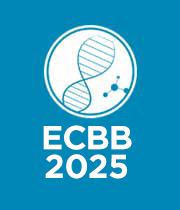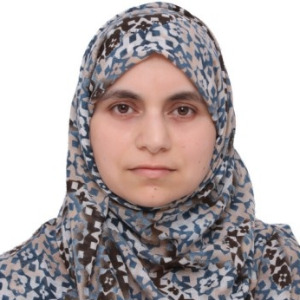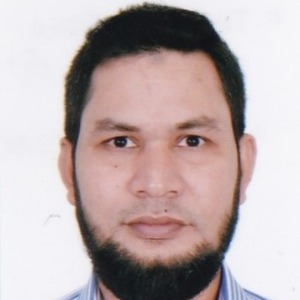Thomas J Webster, Interstellar Therapeutics, United States
Implant infection is rising with the U.S. Centers for Disease Control predicting one person every three seconds will die from a bacteria infection by 2050. Nanomedicine is the use of nanomaterials to improve disease prevention, detection, and treatment which has resulted in hundr [....] » Read More













































Title : Biotech innovations: Bioengineering potential for novel biomanufacturing systems
Murray Moo Young, University of Waterloo, Canada
We examine new biomanufacturing ideas, and re-examine certain “old but not obsolete” ones for recycling agricultural and industrial waste residues into commercial products such as biofuels, biopharmaceuticals and food products. In particular, we explore the use of abu [....] » Read More
Title : Targeting noncanonical epitopes in anti-cancer immunotherapy
Michele Mishto, Francis Crick Institute, United Kingdom
MHC class I complexes can present antigenic peptides that have a sequence produced by post-translational mechanisms such as peptide splicing. Some examples of tumour-associated spliced epitopes have been investigated for their immunogenicity in the context of cancer so far. We de [....] » Read More
Title : Effect of maltogenic amylase, high-performance maltogenic amylase enzymes, and Bacillus coagulans probiotic bacteria on the shelf life and other properties of baked bread and tortilla
Assad Al Ammar, Specialty Enzymes and Probiotics, United States
The research project involves studying the effect of addition of Maltogenic enzyme to improve the shelf life and other desirable properties of baking goods (white bread and tortillas). Maltogenic enzyme breaks down long chains of amylopectin in starch to shorter chains that can h [....] » Read More
Title : Solving the challenges of engineering an ultra-long acting insulin-Fc conjugate
Tina Moller Tagmose, Novo Nordisk A/S, Denmark
Millions of people with diabetes suffer from the burden of daily subcutaneous insulin injections. Engineering a basal insulin for once weekly injection will result in fewer injections and likely improved acceptance of and compliance to the treatment, thereby improving glucose con [....] » Read More
Title : Decoding pediatric appendicitis disease: Glycosylation insights via HPLC and mass spectrometry
Dalma Dojcsak, University of Miskolc, Hungary
N-glycosylation, an asparagine-linked glycosylation process, plays a vital role in cellular interactions, angiogenesis, immune response, and effector functions. Altered N-glycosylation impacts tumor growth and both acute and chronic inflammatory processes. IgG, the second most ab [....] » Read More
Title : Investigation and optimization of DNA isolation efficiency using ferrite-based magnetic nanoparticles
Timea Gerzsenyi, University of Miskolc, Hungary
DNA isolation is a crucial step in many molecular biological applications for diagnostic and research purposes. However, traditional extraction requires toxic reagents and commercially available kits are expensive, this leading to the recently wide-spread method, the magnetic nan [....] » Read More
Title : Aluminium mediated expression of dehydration stress protein and ability of Al-acclimatized immobilized Nostoc muscorum: A strategy to combat abiotic stress and its potential as a biofertilizer
Alvina Farooqui, Integral University, India
In the present study engineered cyanobacteria based biofertilizer using the concept of acclimatization and immobilization has been for the very first time introduced and attempted. The cyanobacterium Nostoc muscorum (N. muscorum) was well acclimatized to Al metal by initially sub [....] » Read More
Title : Production of nanoliposomal amphotercin B topical gel as effective treatment for human Cutaneous Leishmaniasis (CL) disease
Abdulsada A Rahi, Wasit University College of Science, Iraq
Human cutaneous leishmaniasis (CL) is the disease caused by Leishmania sp. parasite and it endemic in Iraq and other world countries. This study comprised 78 cases of suspected CL disease. Before treatment, 66 (84.6%) cases were positive and 12 (15.4%) cases were negative among t [....] » Read More
Title : Production of nanoliposomal amphotercin B topical gel as effective treatment for human Cutaneous Leishmaniasis (CL) disease
Magda Abdulkalek Ali Al Rubaie, Science College of Wasit University, Iraq
Human cutaneous leishmaniasis (CL) is the disease caused by Leishmania sp. parasite and it endemic in Iraq and other world countries. This study comprised 78 cases of suspected CL disease. Before treatment, 66 (84.6%) cases were positive and 12 (15.4%) cases were negative among t [....] » Read More
Title : Bioleaching of metals from cellphones batteries by a co-fungus medium in presence of carbon materials
Khashayar Partovi, ISQI, Iran (Islamic Republic of)
Today, the increased rate of electronic portable devices has led to an unprecedented amount of electronic waste. The mass production of the new generation of batteries, such as lithium-ion and lithium-ion polymer batteries used in the electronic devices releases a high volume of [....] » Read More
Title : The effects of different doses of paracetamol on the development and morphometry of insects with forensic value
Danisile Tembe, University of KwaZulu-Natal, South Africa
Postmortem interval (PMI) estimation is an important factor in forensic investigations. In forensic entomology, the time of death is estimated by analyzing the age of the oldest insects found on a decomposing carcass, examining the development and succession pattern of insects. H [....] » Read More
Title : Virulent properties in Escherichia coli strains isolated from abattoir effluents, kunu drinks and urine samples within abakaliki metropolis, South East, Nigeria
Onwa Collins Ndubuisi, Alex-Ekwueme Federal University Ndufu Alike Ikwo, Nigeria
This research was carried out to identify the presence of Escherichia coli from Abattoir effluents, Kunu drinks and Urine samples within Abakaliki Metropolis and to determine the virulent properties in the isolated strains. A total of one hundred and eighty one (181) samples were [....] » Read More